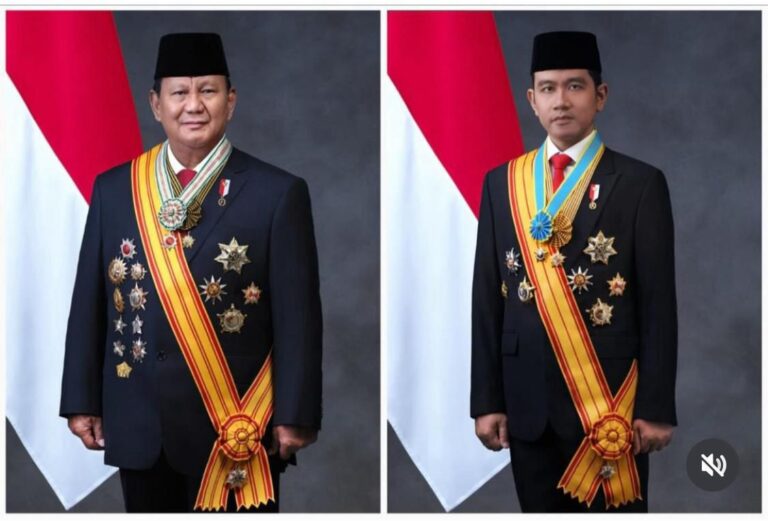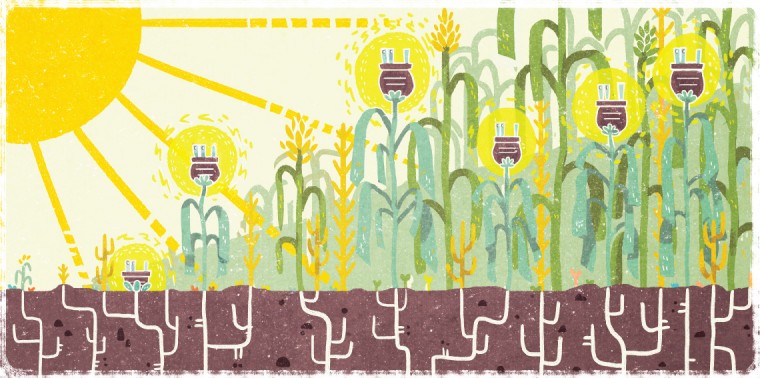
STRATEGIC ASSESSMENT- According to the information on the Indonesian Army Strategic Reserves Command, the 515th Raider Infantry Battalion and the U.S. Army SFAB Mobile Training Team held a 14-day joint exercise in Jember, East Java, starting from Saturday (5/7) to improve capabilities and to prepare for the Garuda Shield exercise in August.
Deputy Commander of Infantry Battalion Raider 515 on Saturday motivated the participants to focus and pay attention to the training material, as well as to maintain two-way communication between participants and trainers. The exercise is expected to build relationship and to exchange knowledge and experience between soldiers of the Indonesian and the U.S. Army.
Russia’s arms sales to Southeast Asian countries reportedly to have dropped considerably in recent years, falling short of the United States and China. According to a report by ISEAS and the Yusof Ishak Institute, Russia’s arms exports to Southeast Asia have dropped from $1.2 billion in 2014 to $89 million in 2021.
According to data from the Stockholm International Peace Research Institute (SIPRI), the drop is attributed to Russia’s armament shipments to Southeast Asia are expected to surpass those of the United States and China by 2021.
Deputy Navy Chief of Staff Vice Admiral Ahmadi Heri Purwono on Monday said the Indonesian navy has thwarted the smuggling of 179 kilograms of cocaine with an estimated price of IDR1.25 trillion on Sunday in the Sunda Strait, Banten. He said the task force KAL Sangiang discovered four black plastic packages allegedly containing drugs floating in the sea while on duty around Merak Harbor, Banten.
Terror group cell’s issue
National Counterterrorism Agency (BNPT) Director Irfan Idris said the BNPT was aware that the United States imposed sanctions on five Indonesian citizens for allegedly facilitating funding for the ISIS. Irfan said his team was aware that the five Indonesian citizens were ISIS foreign fighters before the U.S. released its findings and imposed the sanctions.
Among the five, some are still in prison and some have been released. BNPT’s Director of Prevention Ahmad Nurwakhid said the five citizens were affiliated with Jamaah Ansharut Daulah (JAD) terrorist network in Indonesia.
The National Police said three of the five Indonesian nationals sanctioned by the U.S. Treasury were allegedly still in Syria. National Police Spokesperson Dedi Prasetyo on Tuesday said Dwi Dahlia Susanti and Dini Ramadani were allegedly in Syria according to their travel documents. Meanwhile, Muhammad Dandi Adhiguna was allegedly in Syria based on the information from his father. Dedi also said the police had coordinated with Interpol in this case.
The United States imposed sanctions on five Indonesian citizens for being part of a network of financial facilitators for the Islamic State of Iraq and Syria (ISIS) in Indonesia, Syria, and Turkey. In a statement posted on Monday, the U.S. Department of Treasury mentioned that the five Indonesians are Dwi Dahlia Susanti, Rudi Heryadi, Ari Kardian, Muhammad Dandi Adhiguna, and Dini Ramadhani. They were accused of playing a key role in facilitating the travel of extremists to Syria and other areas where Islamic State operates, and of conducting financial transfers to support the group’s efforts in Syria-based displaced persons camps.
The Treasury said the network collects funds in Indonesia and Turkey, “some of which were used to pay for smuggling children out of the camps and delivering them to ISIS foreign fighters as potential recruits.”
“The United States, as part of the Global Coalition to Defeat ISIS, is committed to denying ISIS the ability to raise and move funds across multiple jurisdictions,” Brian Nelson, the Treasury’s undersecretary for terrorism and financial intelligence, said in the statement. The Treasury freezes any of their U.S. assets and generally bar Americans from dealing with them. Secretary of State Antony Blinken said Monday that by designating them, the Biden administration aims “to expose and disrupt an international ISIS facilitation network that has financed ISIS recruitment, including of vulnerable children in Syria.”
Economic issues
Indonesia’s national airline Garuda Indonesia operates a state flight carrying President Jokowi who will attend the ASEAN-U.S. Summit in Washington, D.C. on May 12 to 13. Garuda Indonesia President Director Irfan Setiaputra on Tuesday said the state flight is a separate manifestation for Garuda Indonesia in carrying out its mandate as a national flag carrier, particularly in supporting the provision of flight service accessibility for strategic agendas.
State-controlled airline Garuda Indonesia has asked a Jakarta court to extend for the third time its deadline to complete its debt-restructuring process, its CEO said, as the verification of claims remains unfinished.
Garuda proposed a 30-day extension to verify claims and finalise negotiations with creditors, CEO Irfan Setiaputra said during a creditors meeting at the Central Jakarta Commercial Court on Tuesday. The flag-carrier is seeking to slash liabilities of $9.8 billion down to $3.7 billion under the debt restructuring. Creditors have submitted $13.8 billion worth of claims against the struggling airline.
The Indonesian Ombudsman on Tuesday examined four ministries and institutions to explore issues regarding the supply and price of cooking oil, including the Industry Ministry, the Trade Ministry, the Palm Oil Support Fund Agency (BPDPKS), and the Finance Ministry. Ombudsman member Yeka Hendra Fatika on Tuesday said the results of the examination will be one of the materials for the Indonesian Ombudsman in delivering corrective actions to improve the supply and to help create stable price of cooking oil.
Indonesia’s environment ministry may have committed maladministration in announcing the revocation of nearly 200 permits for logging, plantation and mining concessions, the country’s office of the ombudsman says. If the concession holders were negligent in managing their concessions, as the ministry claimed, then the problem should have been detected much earlier and dealt with case by case, indicating a failure by officials to periodically review the permits, the ombudsman says. It adds that the environment ministry has no authority to revoke oil palm concessions, whose final permits fall under the remit of the land ministry to do so.
Indonesia-focused venture capital firm East Ventures closed its latest fund at $550 million to back tech start-ups in Southeast Asia’s largest economy. The fund will allocate $150 million for early-stage deals and $400 million for growth-stage investments, said Willson Cuaca, co-founder and managing partner of East Ventures.
East Ventures raised what it says is a record Indonesia-focused VC fund as a global selloff of tech stocks intensifies. The Federal Reserve warned of deteriorating liquidity conditions across key financial markets amid rising risks from the war in Ukraine, monetary tightening and high inflation in a semi-annual report published Monday.
President Jokowi on Monday appreciated the concrete steps taken by the ministers of the Onward Indonesia Cabinet in handling COVID-19, so that it had a positive impact on the stability of national economic growth.
He said based on the Central Statistics Agency (BPS) data, Indonesia’s economy in the first quarter of 2022 grew 5.01 percent year-on-year, surpassing those of the United States, China, Germany, and a number of ASEAN countries. On the other hand, Jokowi also ensured that the implementation of community activity restrictions (PPKM) was still in effect, even though the number of daily active cases of COVID-19 in the country had decreased.
Economic Affairs Coordinating Minister Airlangga Hartarto on Monday said the emergence of the Omicron variant and geopolitical tensions between Russia and Ukraine disrupted global supply chains. He said the circumstance has caused a rise in inflation in a number of countries and impeded the continuing global economic recovery. However he said Indonesia’s economic growth in the first quarter was stable at 5.01 percent, surpassing a number of countries including China (4.8 percent), Singapore (3.4 percent), South Korea (3.07 percent), and the United States (4.29 percent).
As the producer of 60% of the world’s palm oil, Indonesians find it difficult to accept that their country cannot significantly influence global prices for the commodity that many of them depend on for cooking oil, a vital basic need. But that is the reality, the fact that Indonesian President Jokowi is learning to his considerable political cost as he battles to contain social unrest over cooking oil prices sent soaring by a combination of factors, including the war in Ukraine, the pandemic and corrupt local business practices.
The combination of ineffective policy approaches to contain the price of cooking oil and clear indications of corruption have pushed Jokowi’s administration to the edge. If Indonesia bans the export of other palm oil related products, that could result in countries such as India banning the export of things such as the raw materials needed to make medicines. Another headache for Jokowi is that while he has taken the tough decision to administer some shock therapy to Indonesia’s private palm oil companies, this will not go down well with the 2.7 million palm oil farmers who will be adversely affected if the dramatic policy shift is sustained over the long term.
Pressure from businesses and environmental groups has slowed the destruction of rainforests to produce palm oil in Indonesia. Rising demand for the commodity has tested those efforts, but so far further deforestation has been kept in check. Palm oil prices have tripled over the past two years to record levels and are likely to remain high. Along with other costlier commodities, palm oil is feeding global inflation.
“It looks like the link between prices and expansion has broken,” said David Gaveau, a scientist who heads TheTreeMap, a forest monitoring organization based in France. As prices rose in 2020 and 2021, Gaveau expected to see a surge in deforestation as growers tried to cash in. But in defiance of historic trends, growth continued to slow, he said. “For now it is holding,” he said. “It seems like the price pressure isn’t yet impacting deforestation rates so yes, this is really good news.”
The Indonesian Chamber of Commerce and Industry (Kadin), the organizing committee of Business 20 (B20) Indonesia, has just ended a business roadshow to the U.S. Indonesia is a significant economic partner of the U.S. with about $30 billion in two-way trade and $18 billion in US foreign direct investment (FDI) in Indonesia. The reinvigoration of the Jakarta-Washington partnership must be supported with higher participation by business sectors.
Our programs in the U.S. started with the Bloomberg New Economic Forum in New York, where business leaders and investors explored growth opportunities in the transition to net-zero carbon emissions and sustainable financing mechanisms. We also agreed to host a special one-off BloombergNEF Summit Bali on Nov. 12, ahead of the B20 Summit, providing Indonesia more space to drive global movement to a net-zero carbon emission economy.
In Washington, D.C., Indonesia’s business delegation held talks with leading economic, trade and financial institutions such as the U.S.-ASEAN Business Council (USABC), U.S. Chamber of Commerce, U.S. Trade Representative (USTR), the World Bank, Millennium Challenge Corporation (MCC), and many others.
We also hosted an Indonesia-U.S. Business Forum attended by hundred business leaders, discussing their involvement in the upcoming B20 Summit and several investment projects. Numerous prominent family foundations and well-known private equity funds expressed great interest in the projects. The U.S. International Finance Development Corporation (DFC), which provides private investment opportunities for emerging markets also responded positively.
The delegation also met John Kerry, the U.S. president’s special envoy for climate change, and deeply engaged in a conversation on how business sectors can end the country’s reliance on non-renewable energy and to help sustainably use the ocean resources for economic growth through the optimization of the blue economy.
Indonesia is also in the process of ratifying the Regional Comprehensive Economic Partnership (RCEP) Agreement, expected to be done before the G20 Summit It will enable greater regional supply chain connectivity between ASEAN and its regional partners, allowing Indonesia to be a good alternative production base in the region to diversify U.S. supply chain reliance on China.
Political issues
Dozens of protesters gathered on Tuesday, in Jayapura, Papua, in a demonstration rejecting the establishment of new autonomous regions. The demonstration turned chaotic as several protesters threw stones to the security officers. Using water cannon and tear gas, military and police officers dispersed the protesters.
Manokwari Solidarity of Students and Papuan People on Tuesday held a demonstration against the Special Autonomy for Papua and the New Autonomous Region at Amban Village, West Manokwari District, West Papua. The protesters sought to meet the West Papua House of Representatives and the West Papuan People’s Assembly, but they were not permitted for the long march. Representative of the Papuan Customary Council (DAP) Region III Doberay, Rokon, said the protesters were disappointed because the police did not provide space for people’s and customary representatives to meet.
Papuan students on Tuesday held a demonstration in front of the Merdeka Building, Bandung, West Java, against special autonomy in Papua and demanding the independence of West Papua.
Ten Indonesian students from Papua graduated from Corban University amid the COVID-19 pandemic. According to a statement issued by the Indonesian Consulate General in San Francisco on Monday, the students came from various regions in Papua and studied in the United States on a special scholarship from the Papua provincial government.
Consul General Prasetyo Hadi said the program offers opportunities for Papuan students to study overseas, particularly in the United States, to build the capacity of Indonesian youth in the regions.
Debate on the formation of new autonomous regions in Papua continues. Politically and economically speaking, the formation of new autonomous regions can offer economic and welfare growth for the people of Papua.
Home Affairs Minister Tito Karnavian, three weeks ago, said the government will consider everyone’s input. He said the government takes into account the opinions of both Papuan elites and indigenous groups.
The latter requires a special strategy, because Papua has a diverse indigenous groups. On the one hand, this shows the reality that the voice of indigenous Papuans has not been fully heard. On the other hand, the government has work to do to ensure that they listen to the aspirations of the people instead of only groups or even elites. For those who oppose, the formation of new autonomous regions is nothing more than an extension of Papuan elite oligarchy.
We continue to urge the government to listen to the aspirations of indigenous Papuans, not the voice of Papuan oligarchs. Thus, the aspirations presented at the decision-making table are sincerely for the progress of the Papuan people. Yet the central government cannot seem to separate itself from this circle of elites.








